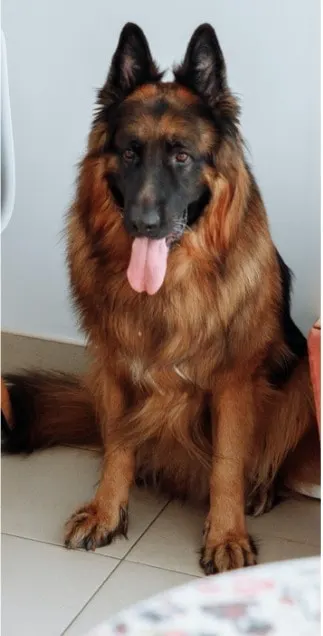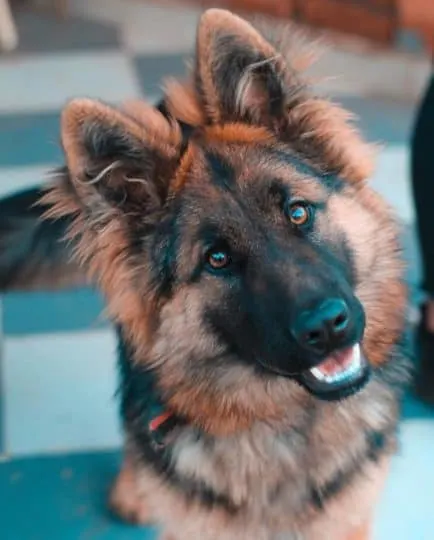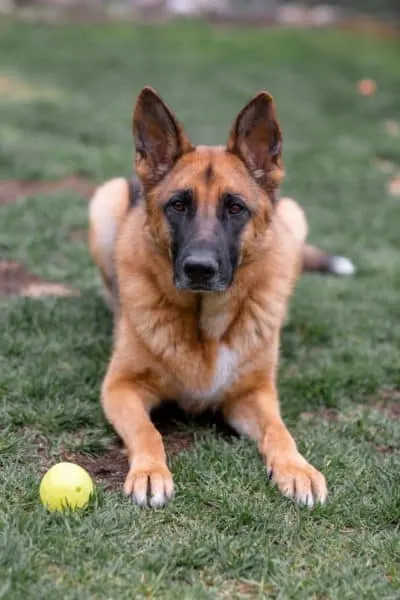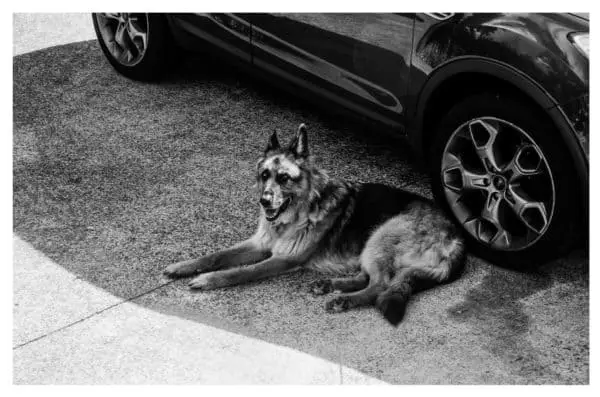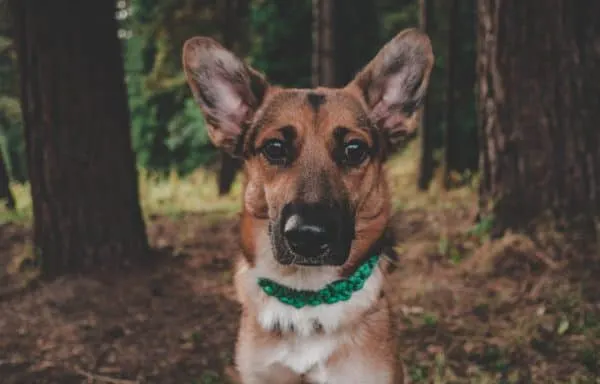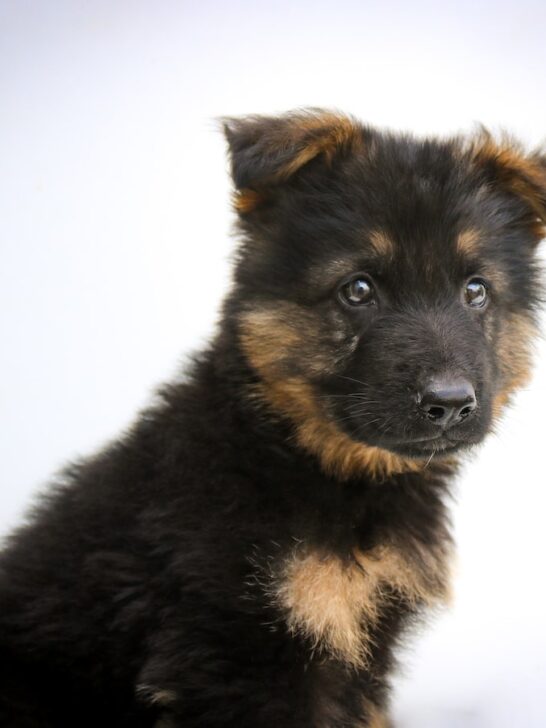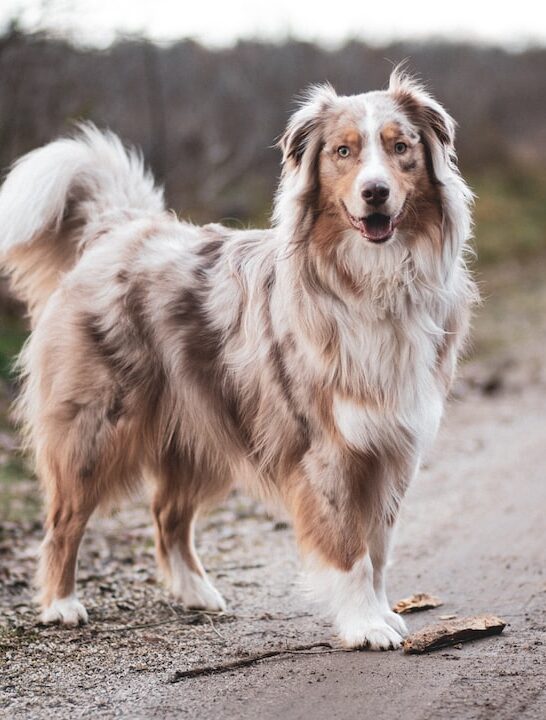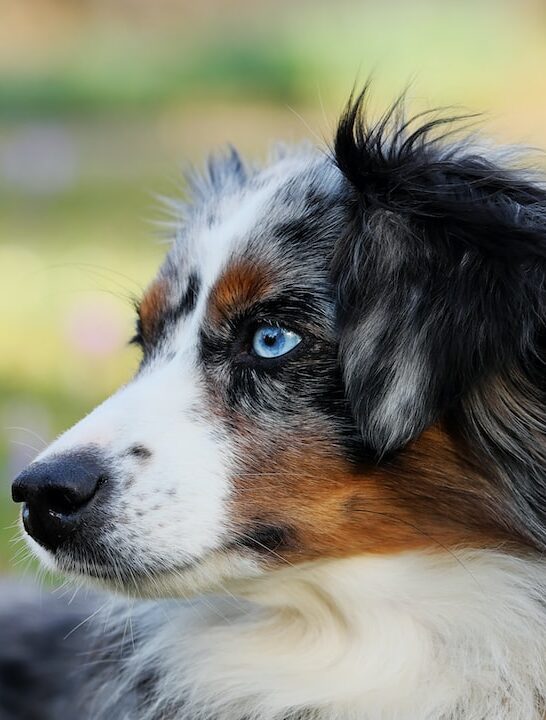Long Haired German Shepherd vs. Short Haired: Fast Facts For GSD Owners
For years the German Shepherd has enjoyed a top position on the American Kennel Club’s list of favorite breeds, and as of 2019 it currently ranks as the second most popular dog in the United States.
Only the perennial favorite Labrador Retriever has it beat! And once you get to know more about this lovable and highly trainable breed, you’ll understand why.
German Shepherds are commonly thought of as guard dogs, thanks in large part to their frequent use as K-9s in military and police units the world over.
Their courage and protective nature have been honored with movies like Strongheart and Rin Tin Tin, and GSD search-and-rescue dogs help recover survivors trapped in the rubble of the September 11th attacks.
But the German Shepherd isn’t merely a devoted protector; it is an affectionate and helpful companion as well.
The first Seeing Eye Dog was a German Shepherd named Buddy, whose assistive companionship helped his owner Morris Frank gain newfound quality of life. Morris was quoted as saying, “Buddy delivered to me the divine gift of freedom.”
Most of us are familiar with the short-haired German Shepherd, the breed most commonly seen on television and in movies.
Long haired German Shepherds are rarer, and because their fur is considered a defect by the AKC, they are not recognized as an official breed.
The good news is that if you aren’t seeking a show dog, a long-haired German Shepherd can make a wonderful pet.
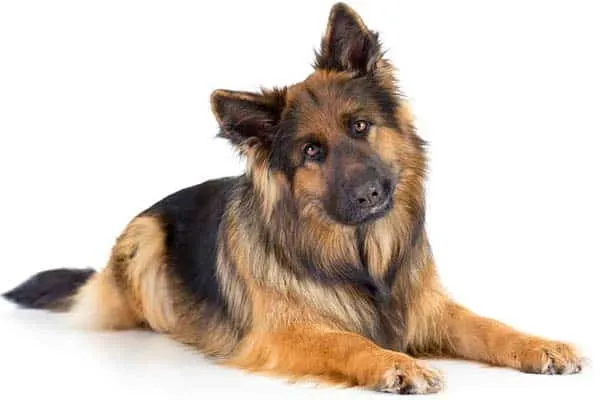
What Do Long-Haired and Short-Haired German Shepherds Have In Common?
Long haired German Shepherds are the product of autosomal recessive genes and are thus considered a “fault” by the AKC.
But many GSD enthusiasts prize the long haired German Shepherd for their beautiful, silky coats. Why? Because aside from the length of their fur, long- and short-haired German Shepherds are essentially the same.
The positive characteristics people associate with the classic short-haired German Shepherd are just as prevalent in their long-haired counterparts. These include:
– Life expectancy: On average, you can expect a long- or short-haired German Shepherd to live 10 – 13 years. Proper diet, frequent exercise, and regular veterinary visits can all help prolong the life of your GSD.
– High intelligence: The GSD is highly prized for its aptitude to learn. Many dog experts consider the breed to be the most intelligent in the world, and the dogs are widely recognized for how easy they are to train.
– Loyalty and companionship: Like all dogs, German Shepherds will give back the love and affection shown to them. They will also be devoted protectors to their owners and families, and this is true of both long- and short-haired varieties.
German Shepherds Are Valued for Their Temperament
Long haired German Shepherds and short haired alike are widely prized for their inquisitive, intelligent, confident, and highly trainable personalities.
Their ability to adopt virtually any new skill and complete any task set before them has allowed them to excel as police and military K-9s, guard dogs, show dogs, and companion animals.
Their loyalty and alertness mean they will make ideal protectors for you and your family. Parents with children can feel secure with a German Shepherd in the house, knowing that it will be the first to detect the warning signs of a possible intruder.
Because they are possessive of their owners, German Shepherds tend to behave indifferently toward people they don’t know, affording you an additional level of protection if you’re walking alone, especially at night.
German Shepherds are sometimes said to have “one-track minds,” and this helps explain their utility as working dogs.
When being taught a new skill, they will give it their full attention until they have mastered it. If assigned a task to do, they will commit to it fully until the task is done.
The primary drawback of this personality trait is that if a GSD does not have a job, it may try to burn off some of its nervous energy through destructive behaviors like chewing.
Because this breed is so prone to separation anxiety, it’s common for them to bark, scratch, and chew when left alone for prolonged periods of time.
Undesirable behaviors like these can be curtailed in a few different ways: ensuring the dog gets enough exercise and attention when you’re home, crating the dog when leaving home for short periods of time, and ensuring the dog has something to keep it entertained, like a favorite chew toy or a puzzle like a Kong.
When training your German Shepherd, positive reinforcement is preferable to harsher forms of discipline.
These dogs thrive on praise from their owners, and when their intelligence and dedication are rewarded they will be even more eager to replicate their good job the second time around.
Because they are so highly food-motivated, small treats can help galvanize them to perform at a higher level.
German Shepherds Come With Some Health Concerns
Though strong and hearty animals, German Shepherds have a predisposition to a few particular ailments that can affect their quality of life.
According to PetHealthNetwork, One of the most common is hip dysplasia, a malformation of the hip socket that can lead to arthritis and potential lameness.
The joint malformation associated with dysplasia causes painful rubbing and grinding of the ball against the socket.
Over time, this can lead to chronic pain, deterioration of the hip joints, and loss of mobility. The good news is that you can take preventative measures to avoid this likelihood in your German Shepherd.
The first and most critical step is to ensure your dog comes from a reputable breeder. Genetics plays a major role in traits like life expectancy and proneness to ill health, so choosing a German Shepherd from a lineage known for its good health is your best bet at avoiding future medical problems.
Hip dysplasia tends to be a more frequent occurrence in large breed dogs, which means proper nutrition is important for preventing excess growth.
You can help reduce your GSD’s likelihood of developing dysplasia and other joint problems by feeding it food specially formulated for large breeds in order to meet nutrition requirements without fostering skeletal problems.
Your German Shepherd’s diet can be supplemented with glucosamine, which is available in chewable form and which has been shown to help prevent joint deterioration.
Ensuring your GSD gets the recommended amount of exercise is likewise crucial to prevent future joint problems.
Just as too little exercise can contribute to obesity, which puts unnecessary strain on the hips and other joints, too much exercise can cause repetitive motion injuries, especially in dogs with a predisposition to dysplasia.
Be mindful of symptoms including decreased range of motion, decreased activity, loss of thigh muscle mass, a narrow stance, a “bunny hopping” gait, and signs of stiffness during movement. If your dog starts displaying one or more of these signs, you should see a veterinarian.
Be Aware That German Shepherds Shed…A Lot!
When choosing between a long haired German Shepherd and short-haired a pet, you may find yourself weighing the pros and cons of their coats and how much clean-up you’ll have to do.
Though it may seem logical to assume that long haired German Shepherd shed more hair, the reality is that both breeds are equally guilty of copious shedding!
The main difference between the two breeds is that while a short-haired German Shepherd tends to drop loose hair easily, the long-haired breed will carry a lot of shed hair in its coat. Check How to control German Shepherd shedding.
Especially in the spring and winter when animals naturally lose their hair, you can expect your long-haired GSD’s undercoat to thin out, and the shed fibers remain trapped in its outer coat.
As a dog owner, you can’t stop your German Shepherd from shedding hair, but there are steps you can take to help reduce the mess.
Frequent brushing is your first and best line of defense, and ideally, your GSD should be brushed every day. If you get rid of the loose hair before the dog has a chance to drop it, you’ll be able to help minimize the impact on your carpet and furniture.
Regular baths can help mitigate shedding especially for long-haired breeds. Thorough grooming can help remove the stubborn undercoat that doesn’t always want to come free with brushing alone. Plus, it’ll keep your GSD smelling daisy-fresh!
Finally, diet plays a role in how much your dog sheds. Dogs get most of their moisture from the food they eat rather than from the water they drink, so it’s important that they aren’t subsisting on dry kibble alone.
Wet food is always recommended over dry food, and if that isn’t possible then veterinarians recommend offering moisture-rich foods including watermelon and carrots. Fish and flaxseed oil can also help give your GSD’s coat a lustrous sheen!
Your German Shepherd Needs a Job
We don’t mean you need to go out and enroll it in K-9 training, but you should give your short- or long-haired German Shepherd something to do to help keep its active mind occupied and to help it burn off energy.
As we mentioned above, these dogs are highly intelligent and full of vitality. They’re also prone to separation anxiety, and these traits combined can spell trouble if your dog is left alone with little to do.
Regular exercise should be a consistent part of your dog’s daily routine. This can include walking, jogging, trips to an off-leash dog park for a game of fetch or Frisbee, swimming, or even agility training. If your German Shepherd is primarily an indoor dog, you can also offer puzzle toys to keep their minds active.
Most puzzle toys take advantage of a dog’s natural inclination toward food motivation by requiring them to solve a problem before being rewarded with treats.
Specially designed puzzle bowls also serve the dual purpose of forcing a dog who likes to eat fast to slow down, which can help prevent the regurgitation that sometimes occurs when a dog gobbles its food.
One of the simplest and most popular puzzle toys is the Kong, a durable rubber chew toy with a hollow space inside where you can put kibble, milk bones, or other treats.
They’re available in a range of sizes, including an extra-large size appropriate for your German Shepherd.
Because the Kong demands the dog’s full attention to extract the edible treat inside, you can rest assured that it will keep your German Shepherd occupied and its mind busy for a good long while!
How Much Will a German Shepherd Cost?
The answer to this question will depend on a number of variables including the reputability of your breeder and whether you choose a short- or a long haired German Shepherd.
Because the long haired German Shepherd is not AKC recognized, you can expect to procure them for less than a purebred short-haired GSD would cost.
However, you should keep in mind that choosing any dog from a less reputable breeder means risking the possibility of unforeseen health problems in the future.
Before purchasing or adopting a dog, you should do a cost-benefit analysis to determine whether these are expenses you can afford.
Short-haired German Shepherds will cost more if you buy them purebred and if they come from a reputable breeder, generally ranging anywhere from $500 to $1500 per puppy.
Though it may be tempting to purchase these dogs from pet stores, online, or from puppy mills, we must advise against this practice, as dogs produced from these sources are often kept in unhygienic conditions, prone to medical problems, and improperly cared for.
In the long run, it will be worth it to you to spend more upfront for a healthier pet later.
German Shepherds Are Worth the Investment
Though they come with some breed-specific needs and risk factors, German Shepherds have a high potential to be loving, devoted pets and protectors.
Whether you choose the short- or long-haired variety, your German Shepherd will bring you years of comfort, companionship, and, best of all, great fun!
Recommended reading
- 5 Best Dog Brushes For German Shepherds
- 7 Best Grooming Tools For A German Shepherd
- 7 Best Shampoo For German Shepherd














